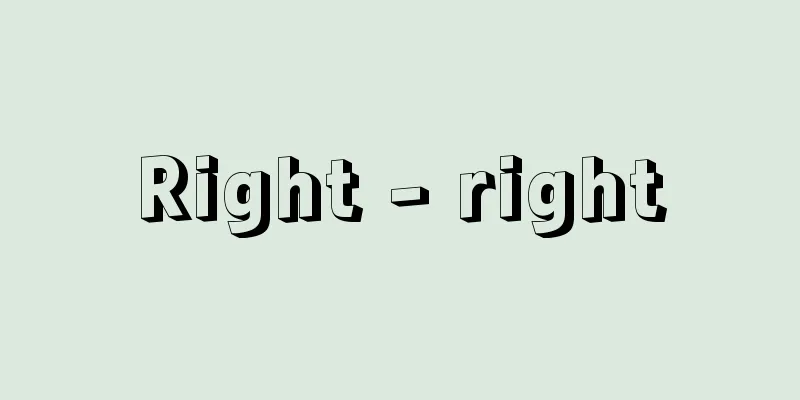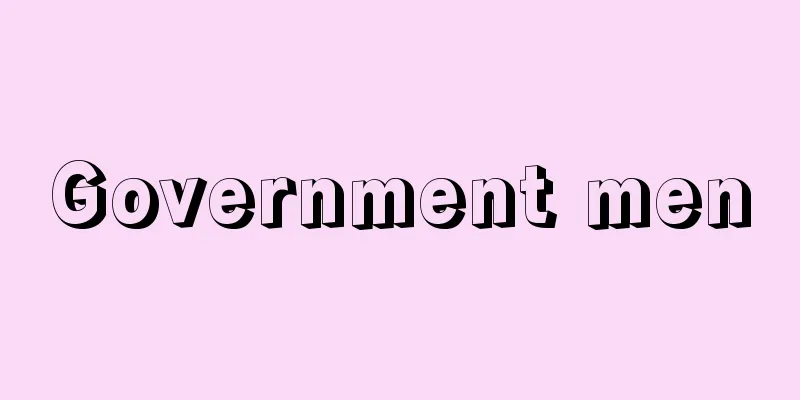Right - right

|
There are various ways of thinking about "what is a right?" and much discussion has been held about it. Broadly speaking, there is the view that a right is the will to enjoy a certain benefit, or the benefit itself, but in general, in relation to law or legal norms, a right is explained as "a certain benefit or the will to protect that benefit that is recognized by law and its realization is guaranteed by state institutions, especially the courts." However, even with this definition, problems remain. "Recognized by law" means that there is a right because there is law, and for example, aren't natural law rights and moral rights not rights? Also, "guaranteed by the court" means that if a right is not recognized by a court, does it not exist before the court? From the perspective of guaranteeing the realization of a right, only those recognized by a court are rights, but there is no need to think about it so strictly, and it is generally safe to say that if it is recognized by law, it is a right. Furthermore, even if the law does not recognize something as a right in its provisions, if the public believes it to be a right, asserts it, and it is recognized by the courts and established as a right, then this can be called a right (for example, the right to sunlight, the right to privacy, the right to know, the right to access the beach, etc.). Therefore, even if rights are institutional, we cannot overlook the aspect that new rights are formed through the formation of people's awareness of rights and their assertion of rights. [Yoshinobu Homma] Law and RightsRights have been discussed together with law. Social relations or human relationships regulated by legal norms are always structured as relationships of rights and obligations. Rights can be thought of together with their corresponding obligations (for example, the seller's claim for payment and the buyer's obligation to pay based on a sales contract. As an exception, formative rights such as the right to cancel or terminate a contract cannot be thought of as corresponding obligations). Therefore, rights relationships can generally be said to be relationships of rights and obligations. And since it is law (modern law) that determines these rights and obligation relationships, law and rights are two sides of the same coin, and rights can be said to be the subjective aspect of law. This is evidenced by the fact that law and rights are expressed by the same word in European languages, such as droit (subjectif) in French and (subjektives) Recht in German. There are two types of rights: public law rights (public rights) and private law rights (private rights). Public rights include national rights such as national sovereignty, the right to self-defense, and the right to collect taxes, and fundamental human rights such as the right to pursue happiness, freedom of thought, freedom of conscience, freedom of expression, freedom of religion, the right to education, and basic labor rights. There are various types of private rights, but they are classified into property rights and non-property rights depending on the content of the right, and into rights of control, claims, rights to create, and rights to defend depending on their effect. The general qualification to be the subject of rights and obligations under private law is called legal capacity. In principle, those who have rights have the freedom to exercise them. However, when the exercise of those rights exceeds a certain limit and unduly interferes with the interests of others (such as when a company causes pollution to nearby residents as a result of its business activities), it should not be tolerated and is called an abuse of rights (Civil Code, Article 1, Paragraph 3). This is recognized as a matter of course given the inherent social nature of rights, but when it is recognized as an abuse of rights involves many issues that must be considered in relation to the public interest and public welfare. [Yoshinobu Homma] [References] | | | | | | |Source: Shogakukan Encyclopedia Nipponica About Encyclopedia Nipponica Information | Legend |
|
「権利とは何か」について、さまざまな考え方があり、これまで多くの議論がなされてきた。広くは、一定の利益を享受しようとする意思、あるいは利益そのものが権利であるとする考え方があるが、一般に、法あるいは法規範との関連において、「一定の利益あるいはその利益を守ろうとする意思が法によって承認され、その実現について国家機関、とくに裁判所による保障を与えられているもの」と説明される。しかし、このような定義づけをしても問題は残る。「法によって承認され」というが、それでは、法があるから権利があるのか、たとえば自然法上の権利、道徳的権利は権利ではないのか。また、「裁判所による保障」というが、それでは、裁判で認められなければ、つまり裁判以前には権利はないのか、などの問題である。権利の実現の保障という観点からすれば、裁判によって認められたものだけが権利であるということになるが、そこまで厳密に考える必要はなく、一般に法律によって認められていれば権利であるといってよいと思われる。また、法律がその条文で権利として認知していなくても、国民が権利として確信し、権利主張をし、それが裁判所によって認められ権利として定着した場合には、これを権利ということができる(たとえば、日照権、プライバシーの権利、知る権利、入浜(いりはま)権など)。したがって、権利が制度的なものであるにしても、国民の権利意識の形成、権利主張を通して、新たな権利が形成されていくという側面を見落とすことはできない。 [本間義信] 法と権利権利は法とともに語られてきた。法規範によって規制される社会関係あるいは人間関係はつねに権利義務の関係として構成される。権利はそれに対応するものとしての義務とともに考えることができる(たとえば、売買契約に基づく売り主の代金債権と買い主の支払債務など。例外的に、契約の取消権・解除権などの形成権はそれに対応する義務を考えることができない)。したがって、権利関係は一般に権利義務の関係といえる。そして、この権利義務関係を定めているのが法(近代法)であるから、法と権利は表裏一体をなしているのであって、権利は法の主観的側面であるといえる。フランス語のdroit(subjectif)、ドイツ語の(subjektives) Rechtなどのように、ヨーロッパの言語では、法と権利が同じことばで表現されるのはこれを物語っている。 権利の種類としては、まず公法上の権利(公権)と私法上の権利(私権)とがある。さらに、公権には、国家主権、自衛権、租税徴収権などの国権と、幸福追求権、思想の自由、良心の自由、表現の自由、信教の自由、教育権、労働基本権などの基本的人権がある。また、私権は種々であるが、権利の内容によって財産権と非財産権に、その作用から支配権、請求権、形成権および抗弁権に分類される。私法上の権利・義務の主体たりうる一般的資格を権利能力という。 権利を有する者は、原則として権利行使の自由を有する。しかし、その権利行使がある限界を超えて行われ、他人の利益を不当に妨害した場合(ある企業が企業活動の結果、周辺住民に公害を及ぼした場合など)には、それは許されるべきでなく、これを権利の濫用という(民法1条3項)。権利の本来有する社会性からして当然のことと認められているが、ただ、いかなる場合に権利の濫用と認めるのかは、公益、公共の福祉との関連でとらえなければならない多くの問題を含んでいる。 [本間義信] [参照項目] | | | | | | |出典 小学館 日本大百科全書(ニッポニカ)日本大百科全書(ニッポニカ)について 情報 | 凡例 |
Recommend
Hematocrit value - Hematocrit value
Abbreviated as Ht, it is also called packed cell v...
Greek alphabet - Girishamoji
The Greek alphabet was probably created around th...
Rink
A shopping center in Higashinada Ward, Kobe City, ...
Timār (English spelling)
In the Ottoman Empire, sipahis (knights) were give...
Nakota
...Leather products were decorated with beads, wh...
Margarete (English spelling)
?‐303 A legendary saint who is said to have been m...
Engobe
… Once the pottery's shape is roughly complet...
Sending off fire - Okuribi
Also called Kadobi, it generally refers to fires ...
Rangyoku - Rangyoku
1. The musical style of Noh music, which Zeami cla...
traveller's tale
…The English term traveller's tale literally ...
L Rice charcoal - Elbetan
…Strong coke must be dense, and if the volatile c...
Arianism - Arianism
An ancient Christian heresy named after its propo...
footrail
…Although it was famous for serving demon rum, th...
Nishinokyo - Nishinokyo
A district in the western part of Nara City. Locat...
Pteropus dasymallus inopinatus (English spelling) Pteropusdasymallusinopinatus
…[Yoshiyuki Mizuko]. . . *Some of the terminology...









